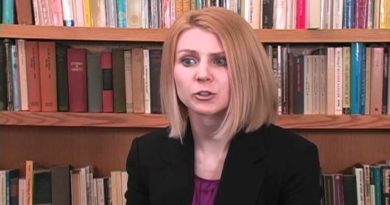Answers to Top 5 Questions about a Last Will and Testament
Typically, a Last Will and Testament acts as the cornerstone of an estate plan. While a Will can act as your only estate planning document, effectuating the distribution of your entire estate, most people choose to include additional estate planning documents in their comprehensive estate plan. Nevertheless, your Will is likely to remain an important part of your estate plan, even if you choose to expand your overall plan. With that in mind, the Indianapolis attorneys at Frank & Kraft provide answers to five questions about a Last Will and Testament.
5 Last Will and Testament Questions
As you navigate the intricacies of estate planning, understanding the answers to some common questions about a Last Will and Testament can provide you with valuable insights. Estate planning is a dynamic process that evolves with your life, so staying informed and periodically reviewing your Will ensures that your wishes are accurately reflected. Should you have additional questions or seek personalized guidance, consulting with an experienced estate planning attorney remains a prudent step toward crafting a comprehensive and effective estate plan.
- Am I Legally Obligated to Possess a Last Will and Testament? While there is no legal mandate requiring you to have a Last Will and Testament, compelling reasons exist to have one. In the absence of a Will or trust, your estate becomes an “intestate” estate, subject to state intestate succession laws governing the fate of your assets. This means that promises made to friends or distant relatives may go unfulfilled, as most state intestate laws designate only spouses and close blood relatives as the heirs of an estate. Additionally, you give up the right to appoint the administrator of your estate if you die without a Will in place.
- Does My Will Cover All My Estate Assets? Determining which assets are distributed through your Will can be a more complex task than you might think. By law, some assets pass to designated beneficiaries without going through probate, meaning they pass outside of your Will. Trust assets, for instance, are distributed by the Trustee according to the terms of the trust agreement and jointly owned property typically becomes the co-owner’s property upon your death. It is crucial to include specific assets in your Will if you want them distributed according to your specification, as those not included in your Will might unintentionally become part of an intestate estate.
- How Can I Ensure the Validity of My Will? Upon your passing, your Will must undergo authentication during the probate of your estate. Challenges to its validity may arise at this stage. To be deemed valid, your Will must meet the state’s fundamental requirements, including being executed by an individual of sound mind and being properly witnessed. While using an internet-sourced Will form may be tempting, collaborating with an experienced estate planning attorney is the most reliable way to ensure validity.
- Doesn’t My Spouse Inherit Everything If I Die Without a Will? Contrary to a common misconception, not having a Will does not guarantee that your spouse will inherit the entire estate. While most states ensure spouses receive a portion of a decedent’s estate, intestate succession laws often allocate shares to children as well. Whether you want your spouse to inherit everything or only specific assets, the best way to ensure that your wishes are honored is to work with an experienced attorney when drafting your Will.
- How Long Is My Will Valid? Fortunately, a Last Will and Testament does not have an expiration date. Even a Will executed several decades ago remains valid today. Nevertheless, periodic reviews and updates are advisable to make sure that your Will reflects your current wishes. Changes may be necessary due to beneficiaries or the Executor predeceasing you, or the need to include beneficiaries born after the Will’s execution.
Are You Ready to Get Started on Your Last Will and Testament?
For more information, please join us for an upcoming FREE seminar. If you have additions questions about your Last Will and Testament, contact an experienced Indianapolis estate planning attorney at Frank & Kraft by calling (317) 684-1100 to schedule an appointment.
Paul Kraft is Co-Founder and the senior Principal of Frank & Kraft, one of the leading law firms in Indiana in the area of estate planning as well as business and tax planning.
Mr. Kraft assists clients primarily in the areas of estate planning and administration, Medicaid planning, federal and state taxation, real estate and corporate law, bringing the added perspective of an accounting background to his work.
Latest posts by Paul A. Kraft, Estate Planning Attorney (see all)






